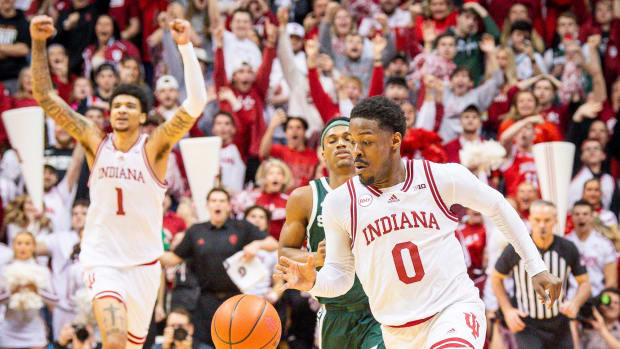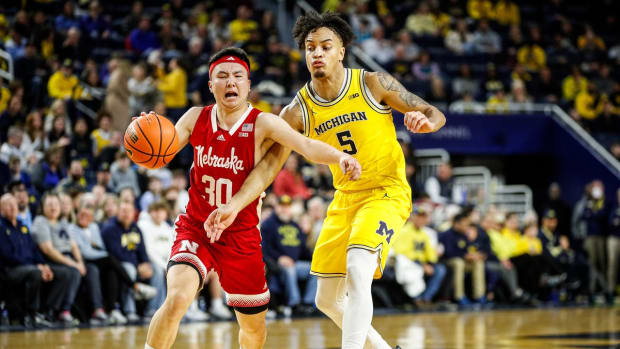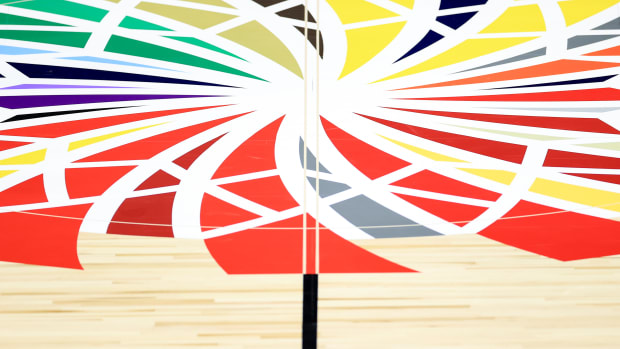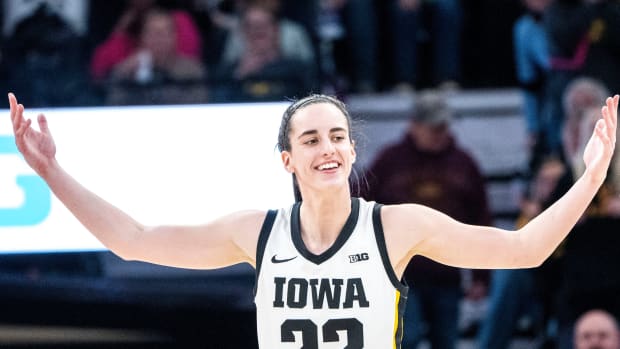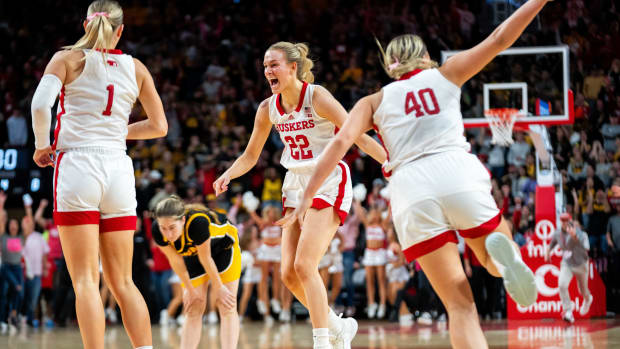Juwan Howard Is Proving His Skeptics Wrong
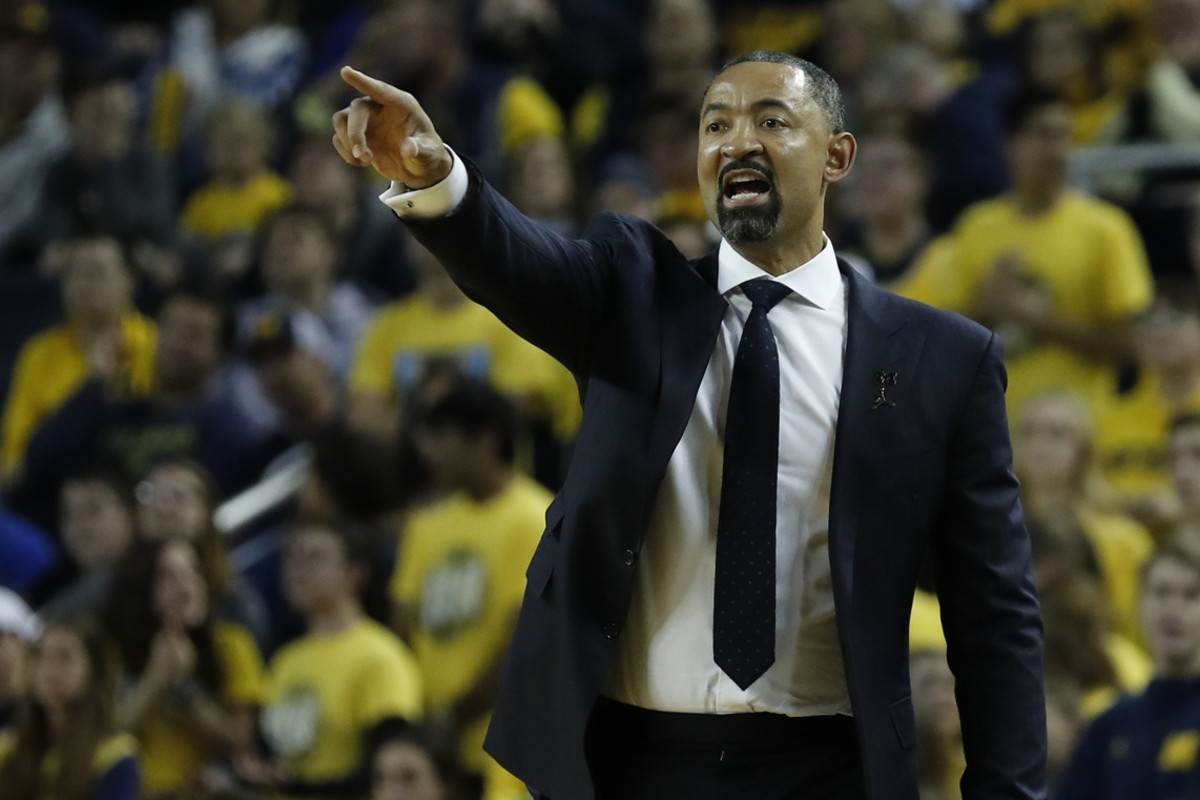
Without his connection to Michigan as a former player, Juwan Howard would not have been hired to take over the basketball program last spring. It's really that simple. His resume showed nothing worth following in the footsteps of, arguably, the most successful head coach in program history.
He was a long-time NBA player (22 seasons between eight teams, the definition of a journeyman). He was a six-year assistant coach with the Miami Heat. He had never spent a day on the road recruiting. Had never spent a day having to make the hard decisions, his vote the final (and only say that matters).
His credentials are not much different than Jacque Vaughn (12 years in the NBA, six teams, star player in college, seven seasons as an NBA assistant), and Vaughan has him beat - three years as the head coach of the Orlando Magic. And no one would have considered hiring Vaughn.
The comparison isn't met to discredit either man, but to point out that Howard wasn't a viable candidate if he wasn't a Michigan Man, and there was considerable reason to be skeptical it would work.
The great theory was that Howard would be able to recruit, maybe not at the Duke, Kentucky level, but consistently in that next tier, of which Michigan only ranked in the Top 20 with the 2018 class (11th), the 2013 class (14th) and the 2012 class (8th) during the John Beilein era. It was farfetched to believe he could do so with the 2020 class, but perhaps in 2021 (if the Wolverines had a respectable team this year).
As far as his coaching bona fides, the skeptics, myself included, said it would take much longer. Best-case scenario? Probably 3-4 years to get up to speed, commit to a philosophy, establish an on-court identity, develop talent, build a successful in-game strategy and formulate game plans that could beat far more experienced coaches.
Within a few short months, though, Howard had blown up recruiting expectations, poised to sign the nation's No. 4 class, with four Top 100 recruits (No. 12 Isaiah Todd, No. 32 Hunter Dickinson, No. 70 Zeb Jackson and No. 89 Terrance Williams), and is the front runner to sign No. 10 Josh Christopher.
If he does, Michigan will be one of just five programs this year to sign a pair of five-stars. The others: Kentucky, Duke, North Carolina and Tennessee. That tier the Wolverines were never supposed to be able to recruit at. U-M will also be the highest rated Big Ten class since Michigan State finished third in 2016, and the best could still be coming - Michigan is projected to land three Top 50 recruits in 2021.
As a recruiter, Howard is magnetic. His players-coach coaching style, charismatic personality, NBA pedigree (not to mention endorsements from legends like LeBron James and Dwayne Wade), relatable personal story (growing up in rough neighborhoods of Chicago without a traditional family dynamic), passion, and what he is selling at Michigan (education, pro opportunity, championship pursuits) has resonated more quickly and effectively than even his most ardent supporters likely thought possible.
He's been a home-run recruiter.
Despite his success leading Michigan to the Battle 4 Atlantis championship Thanksgiving weekend, there remained questions about Howard's coaching, however. His commitment to single-man defense, especially in the post, proved catastrophic in early Big Ten play as did his unwavering trust in Zavier Simpson on and off the court.
Howard's substitution patterns have been, at times, bizarre - he played 4 of 5 starters all 20 minutes of the second half against Rutgers Feb. 1 - and he's had a few strategy flubs, like failing to extend the game in the final 30 seconds trailing Ohio State by one point Feb. 4. But Howard has shown accelerated coaching growth this season in every facet.
He has continued to foster the winning culture forged by Beilein while instilling a mental and physical toughness in his team that very much reflects the kind of player Howard was both in college and in the NBA. His players have gotten better over the course of the season and with the exception of senior Jon Teske (who might be overcoming his slump) have addressed their weaknesses.
Senior Austin Davis is becoming a competent low-post defender (and instant offense off the bench); freshman Franz Wagner has become an above-average defender and a terrific rebounder; Simpson has cleaned up many of the bad decisions he was making and has decreased his 'hero' ball; junior Eli Brooks is, arguably, the best on-the-ball defender on the team and a big-shot three-point shooter; and on and on.
This team is balanced, ranking 20th nationally in adjusted offensive efficiency per Kenpom and 17th in defensive efficiency. He's even outmaneuvered coaches like Tom Izzo, Archie Miller and Matt Painter in recent weeks (to go along with wins over Roy Williams and Mark Few).
Howard developed a game plan to neutralize MSU's Cassius Winston, win without junior Isaiah Livers, give Michigan an edge against a Rutgers' team unbeaten at home, divvy up the proper minute split between Teske and Davis; reign in Simpson, and much more.
I still think Michigan Athletic Director Warde Manuel gambled last May, going high risk hoping for, but not certain of, a high reward. His gamble is paying off far sooner than I ever expected possible; Howard won me over as a recruiter back in November when he landed Todd. He's won me over as a coach this February.
I didn't give Howard enough credit last spring. During his playing career, he was always one of the smartest, savviest, most adaptable players wherever he went, picking up and plying new trades in order to evolve his game and be the player his team needed him to be.
He's translated that skill into his coaching, his growth exponential, and because of that, Michigan fans won't have to wait 3-4 years for the program to compete for postseason success again. Howard is giving the Wolverines that in Year 1, and proving already, he was the best man for the job.

